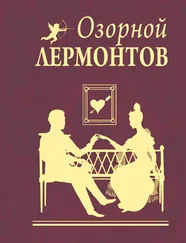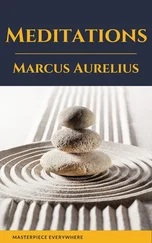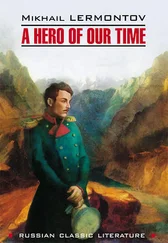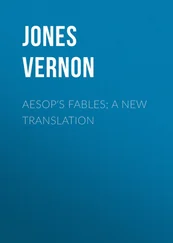“I will,” said the major, “only I don’t understand, really, what is happening, and how you will decide the matter?”
Vulich went into the major’s sleeping quarters without saying anything; we followed him. He walked up to a wall where some guns were hanging. At random he took down one of the variously calibered pistols from its nail; we still didn’t understand him but when he cocked the gun and poured gunpowder into the pan, many couldn’t help but cry out, and they grabbed his arms.
“What do you want to do? Listen, this is madness!” they screamed at him.
“Gentlemen!” he said slowly, freeing his hands. “Whom would it please to pay twenty gold pieces on my behalf?”
Everyone went quiet and stepped away.
Vulich walked into the other room and sat at the table. Everyone followed him. With a gesture, he invited us to sit down in a circle. Silently we obeyed him. At that moment he had acquired some kind of secret power over us. I looked him intently in the eye. With a calm and motionless gaze, he met my searching look, and his pale lips smiled. But, despite his composure, it seemed to me that I could read the stamp of death on his pale face. I had been making observations, and many old soldiers had confirmed my observations, that there is often some sort of strange imprint of inescapable fate on the face of a man who would die in a few hours’ time, so much so that to an experienced eye it is hard to mistake.
“You will die today!” I said to him.
He turned quickly to me, but answered slowly and calmly:
“Maybe yes, maybe no…” And then, addressing the major, he asked, “Is the pistol loaded?” The major in confusion couldn’t remember very well.
“Yes, it is, Vulich!” someone cried. “Of course it’s loaded if it’s hanging at the head of the bed—why play the fool?”
“A stupid joke!” another chimed in.
“I’ll wager fifty rubles to five that the pistol isn’t loaded!” a third cried out.
New bets were made.
I was becoming fed up with this long ceremony.
“Listen,” I said, “either shoot yourself or hang the pistol back in its former place and let’s all go to bed.”
“Of course,” many exclaimed, “let’s all go to bed.”
“Gentlemen, I ask you to not move from your places!” said Vulich, putting the muzzle of the pistol to his forehead. Everyone seemed to turn to stone.
“Mr. Pechorin,” he added, “take a card and throw it up.”
I took, as I remember it now, an ace of hearts from the table and threw it upward; everyone’s breathing stopped; all eyes, showing fear and a sort of ambiguous curiosity, ran between the pistol and the fateful ace, which quivered in the air and slowly fell. The moment it touched the table, Vulich pulled the trigger… a misfire!
“Thank God!” many cried out. “It wasn’t loaded!”
“But, let’s see…” said Vulich. He cocked the gun again and took aim at a military cap hanging above the window. A shot rang out—the smoke filled the room. When it dissipated, they took down the military cap: it was shot right through the middle, and the bullet was lodged deeply in the wall.
About three minutes passed, and no one could utter a word. Vulich poured my gold pieces into his purse.
There was talk about the fact that the pistol didn’t fire the first time; some maintained that the pan had probably been clogged, others were saying in whispers that the gunpowder was damp the first time and that Vulich had poured some fresh powder into it afterward. But I claimed that the latter suggestion was unfounded, because I hadn’t taken my eyes from the pistol once.
“You are lucky in gambling,” I said to Vulich.
“For the first time since I was born,” he replied, smiling with self-satisfaction. “This is better than faro [3] faro: A card game that was popular in the eighteenth and nineteenth centuries, involving an entire pack of playing cards and any number of players.
and stuss.” [4] stuss: A variant of the card game faro.
“And a little more dangerous, too.”
“What’s this? Are you starting to believe in predestination?”
“I believe in it; but I don’t understand why I was so certain that you would die today…”
And the man, who had aimed so coolly at his own forehead not long ago, now suddenly blushed and became embarrassed.
“Enough now!” he said, standing up. “Our wager has been settled, and now your observations, I think, are inappropriate…” He took his hat and walked out. This seemed strange to me—and for good reason!
Soon everyone dispersed to their houses, variously talking about Vulich’s caprice and, probably, unanimously calling me an egoist since I had made a wager with a man who wanted to shoot himself. As if, without me, he wouldn’t have found a convenient occasion!
I was returning home along the empty lanes of the stanitsa; the moon, full and red, like the glow of a fire, was beginning to show itself from behind the jagged horizon of houses. The stars calmly shone in the dark-blue vault of the sky, and I was amused to remember that there were once very sage people who thought that heavenly bodies took part in our insignificant arguments over little tufts of earth or over various invented rights…! And what happened? These lamps which were lit, in their opinion in order to illuminate their battles and victories, still burn with their original brilliance, while their own passions and hopes were extinguished long ago along with their very selves, like small fires lit at the edge of a wood by a careless wanderer! And then what force of will gave them the conviction that the whole sky, with its innumerable population, was watching them with constant concern, mute though it may have been!… And we, their pitiful descendants, wandering the earth without conviction or pride, without pleasure or fear, but with that involuntary dread that grips the heart at the thought of an inescapable end—we are no longer able to be great martyrs, not for the good of mankind, nor even for the sake of our own happiness, because we know it is impossible. And we shift indifferently from one doubt to another, just as our ancestors rushed from one delusion to the next, but without having, as they did, either hope or even that indeterminate but real pleasure that meets the soul in every struggle with people or fate…
Many similar such thoughts passed through my mind, and I didn’t suppress them because I don’t like to dwell on any sort of abstract thought. Where would that lead me?… In my early youth I was a dreamer, I loved to cherish gloomy and iridescent images in turn, which my restless and thirsty imagination painted for me. But what did this leave me with? Only fatigue, like that which comes after a nocturnal battle with a specter, and dim recollections, filled with regret. In this pointless struggle I exhausted both the fire of my soul and the constancy of my will, both necessary for a real life. I then set about living this life, having survived it already in my thoughts, and I became bored and repulsed, like a man who is reading a stupid imitation of a book with which he has long been familiar.
The incidents of the evening had made a rather deep impression on me and agitated my nerves. I do not know whether now I do indeed believe in predestination or not, but I firmly believed in it that night. The proof was striking, and despite the fact that I had mocked our ancestors and their obliging astrology, I had fallen involuntarily into their trap but stopped myself from following this dangerous path just in time. And having the rule of never rejecting anything absolutely, and never believing in anything blindly, I threw out metaphysics and started to look beneath my feet. Such precaution was very apt. I nearly fell, stumbling on something fat and soft, but by all appearances, not living. I stooped—the moon was shining directly onto the road—and what was it? In front of me lay a swine, cleaved in half by a saber… I had barely managed to examine it when I heard the noise of footsteps. Two Cossacks were running from the alley; one walked up to me and asked if I had seen a drunk Cossack chasing a swine. I declared to them that I had not met said Cossack and pointed to the unfortunate victim of his frenzied bravery.
Читать дальше
Конец ознакомительного отрывка
Купить книгу
![Михаил Лермонтов A Hero of Our Time [New Translation] обложка книги](/books/27671/mihail-lermontov-a-hero-of-our-time-new-translati-cover.webp)










